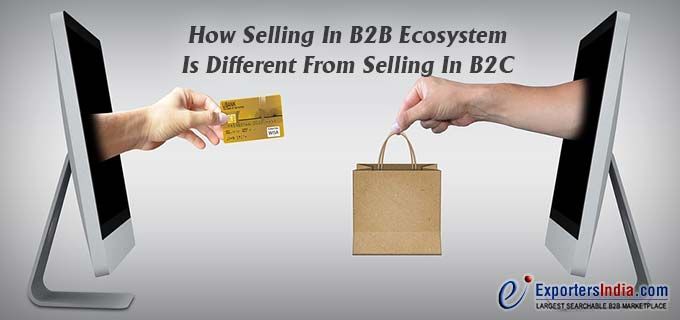
The worldwide economies are driven by the two business models, B2B and B2C. Both B2B and B2C selling have a strong share in pushing the world economy forward; being equal in term of number and even in making money. But we often find separate tips, techniques, and trends for running both these business models differently. This often tickles my mind! How come selling in the B2B ecosystem is different from selling in B2C when both of them are business types? What differentiates B2B business model from a B2C business model?
The core difference between the two is: a B2C business model requires individual efforts for every sale, whereas, in a B2B model, an initial investment of extra time and energy can offer consistent supply opportunity at a fixed cost. However, this is not all. There are a number of other factors that explain the difference between B2B and B2C sales. Read further to draw a clear line between the two.
Price Point
The price point is the certain price on the scales of various possible prices at which a person markets or sells his/her product.
B2B Sales: Price points offered in B2B sales are generally much higher than the price points offered in B2C sales. Transactions take place on a large scale in B2B sales where large enterprises are involved or registered on B2B website.
B2C Sales: The consumers in the B2C sales often offer a lower price point than those offered in B2B sales. The capital exchange taking place among two businesses is very large as compared to the purchase of any product directly by a consumer.
Lead Pool
The size of the lead pool in sales is one of the biggest factors differentiating B2B sales from B2C sales. It is the number of leads or prospects available for your product or service in the marketplace.
B2B Sales: B2B sales often have a smaller lead pool or pool of prospects as compared to the B2C sales. The lead pool shrinks in B2B sales as only prospects with specific requirements visit you for your products. You do not have to market your product to millions of customers, just a small lead pool of target audience is enough to get sufficient lead and deal.
B2C Sales: Contrary to B2B sales, B2C sales have a very large lead pool with every consumer being a probable buying prospect. There may be millions of people in need your products whom you can directly target in B2C sales.
Business Relationship
The length of business relationships that you have with the prospects is different in both the business models. It is basically the amount of time that you share with a particular prospect while doing business with him/her.
B2B Sales: The business relationship shared between the product owner and companies in B2B sales is lengthier than those in B2C sales. The prospects share a long-term business relationship as they consider each purchasing process as an investment of time, money and energy. A lot of research is done to find partners in B2B sales and so companies seek lengthier relationships than normal consumers.
B2C Sales: B2C sale is between the owner and the consumer. The transactions with direct consumers in the market are considered to be one-off transactions where there is no guarantee of the consumer returning back to your business. They may shift their preferences and seek another product from another seller but this does not happen in large-scale transactions taking place in B2B sales.
Expected Response
The expected response is the reaction you desire from your client while explaining your product details. The expected responses from the B2C consumers and the B2B companies are on two opposite ends.
B2B Sales: In B2B sales, the seller expects a very rational response from the company to whom he/she is pitching the product. Various points like price scale, returns, advantages, and service benefits are to be kept in mind to convince the company. You want the prospects to be rational while considering your stats-based pitch.
B2C Sales: In B2C sales, you require the consumer to be emotionally attached to your product for purchase. Even after pitching about the benefits or features of the product, you would always want to gain customer loyalty and preference, which is only possible when you get an emotional response from your B2C client.
Not just these, there are many more differences between B2B and B2C sales. While B2B sales require extensive product knowledge and preparations for explaining the product, B2C sales do not require them to such a large extent. Another difference could be that the decision making in B2C is very quick whereas in B2B sales, it can take days, weeks and even months to finalize on a deal.
Add Comment